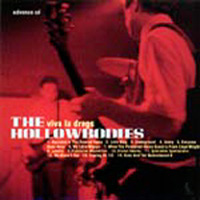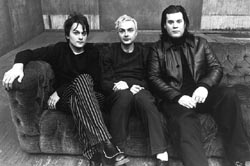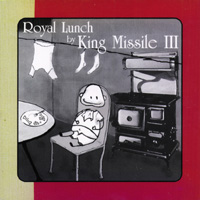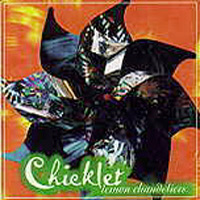 The Hollowbodies
The Hollowbodies
Viva La Dregs (A&M)
by Jamie Kiffel
When I was in high school, I was obsessed with the idea of metaphor. I was so taken with the possibility of creating poetry in which one could find deeper meanings that I wrote a song into which I packed exactly seven levels of possible interpretation. Proud of my accomplishment, I took it to my 10th grade English teacher, whom I was certain would be blown away by each of my seven levels, which clearly were implicit in my work. After reading it, my English teacher looked at me and said, “Well, no one can ever know exactly what your own personal meaning here is, but the images are interesting.” I feel similarly about The Hollowbodies. Singer/songwriter Phillip Roebuck’s vocals are generally clear and tuneful, often hinting at The Jayhawks with middle-American motifs such as racetracks and trailer parks delivered in story form, but these stories seem weighted under the desire to make them stand for more ideas than they can support, thus leaving lyrical tales filled with questionmark-shaped holes. At times, the lyric sheets read like poor translations; for example, “We Move It Out” proclaims cryptically, “incarcerated interlopers independent no surrender/ One then one more milepost gone, we move it out and out.” In other words, people imprisoned for trespassing won’t give in, and we’re moving forward. Or these people stole the mileposts and now we’re moving them out. I think. “Buckshot in the Favored Horse” has a satisfying hook and a story about a winning horse who unexpectedly loses a race. The chorus is baffling, however: “Somebody somebody ought to put a buckshot in the favored horse… Cause he will never come in of course.” Is buckshot big enough to kill a horse? The horse was expected to win, so why will he “never come in of course”? Is the buckshot a pun meaning “money”? Confused zoinky shapes whiz around my head in query. The trouble here is that, in  an effort to avoid using clichés, the author has instead failed to communicate the basic elements of the stories he wishes to tell. Promising moments appear in “Lakefly,” which communicates the power of a speedboat beautifully through racing guitars, and “Ignoramus Spectaculus,” which is satisfyingly catchy, even though I cannot pin down the subject. For those satisfied by the mere suggestion of meaningful lyrics and unmoved by the fact that efforts to make head or tail of their true intent could yield only brain-burn, The Hollowbodies are not a bad listen. For the rest of us, however, a translation would be appreciated.
an effort to avoid using clichés, the author has instead failed to communicate the basic elements of the stories he wishes to tell. Promising moments appear in “Lakefly,” which communicates the power of a speedboat beautifully through racing guitars, and “Ignoramus Spectaculus,” which is satisfyingly catchy, even though I cannot pin down the subject. For those satisfied by the mere suggestion of meaningful lyrics and unmoved by the fact that efforts to make head or tail of their true intent could yield only brain-burn, The Hollowbodies are not a bad listen. For the rest of us, however, a translation would be appreciated.



